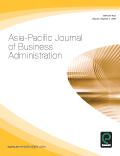Kantabutra, S. & Avery, G.C. 2013.
Sustainable Leadership: Honeybee practices at a leading Asian industrial conglomerate.
Asia-Pacific Journal of Business Administration, 5(1), 36–56.
Abstract
Purpose
– Avery and Bergsteiner’s updated set of 23 sustainable leadership practices derived from sustainable enterprises and five performance outcomes provides a framework to examine the business practices of Thailand’s largest conglomerate, Siam Cement Group (SCG). The aim of this paper is to build on and expand Kantabutra and Avery’s study based on Avery.
Design/methodology/approach
– The analysis was conducted by grouping Avery and Bergsteiner’s principles into six categories, namely taking a long‐term perspective, investing in people, adapting the organizational culture, being innovative, exhibiting social and environmental responsibility, and behaving ethically. Adopting a multi‐data collection approach, research teams supplemented case study data with non‐participant observations from visits to the conglomerate and its training sessions. Multiple stakeholders were interviewed in semi‐structured interviews. Documentation and information supplied by, or published about, the conglomerate was consulted.
Findings
– All six sets of practices, which sharply contrast with the prevailing business model of short‐term maximization of profitability but are consistent with the 23 sustainable leadership practices, were found to apply in varying degrees to SCG. A total of 19 applied strongly, with three others moderately strong.
Practical implications
– Given that sustainable leadership principles are associated with enhanced brand and reputation, customer and staff satisfaction, and financial performance, the new Sustainable Leadership Grid provides corporate leaders with a useful checklist for this purpose.
Originality/value
– This paper reports on the first examination of Avery and Bergsteiner’s 23 sustainable leadership elements in a developing economy. It shows that even a publicly‐listed company can resist pressures to conform to business‐as‐usual practices and adopt the long‐term, socially responsible principles of “honeybee” sustainable leadership.
You may be able to get access to the full-text via your institution.

